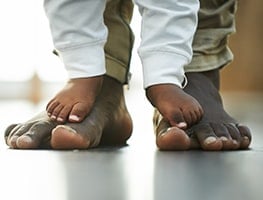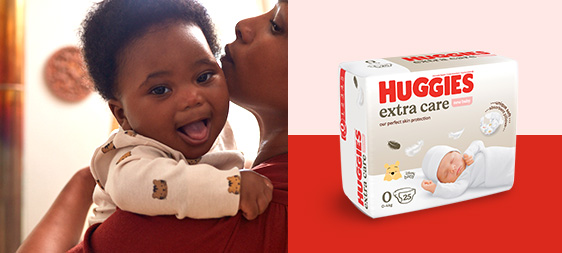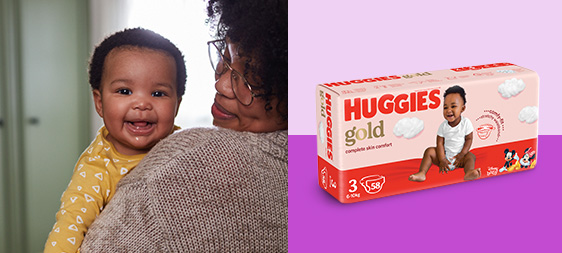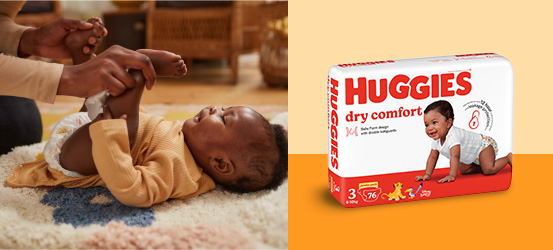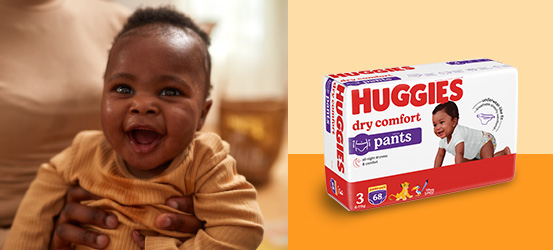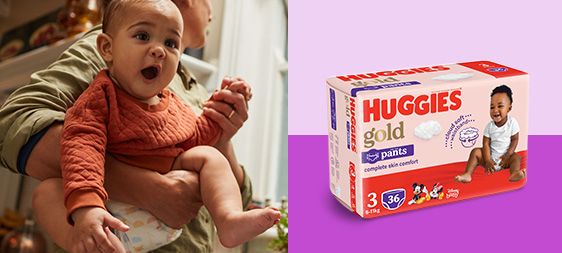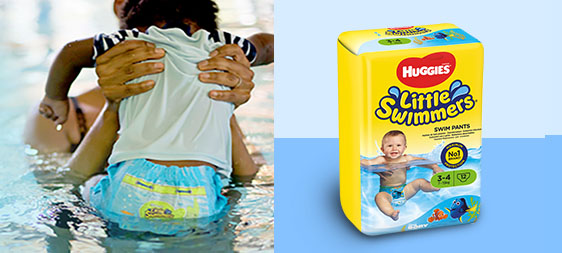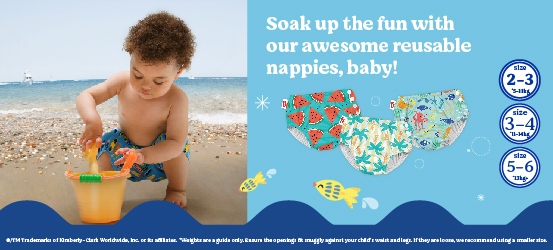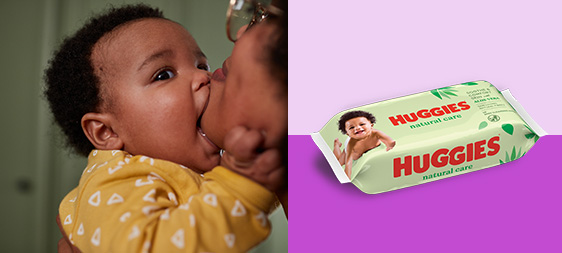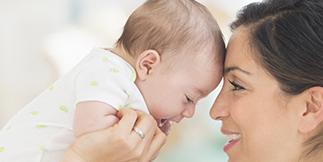Separation anxiety is such a common experience for babies that it is considered one of the normal developmental milestones, though that doesn’t make it any easier for parents to deal with.
Separation anxiety is not something usually seen in newborn babies. They tend to go happily to anyone and as long as their needs are being met, they are generally pretty content. But with time and maturity, most babies develop some degree of fear of strangers, usually when they are between 7-9 months of age.
For some babies, this seems to happen almost overnight; one day they’re sociable and happy to share anyone’s space and the next, they just want to be with their parents – most commonly with mom. It is normal for babies to want to be close to their mother, especially if most of the care and feeding is being done by her.
What is separation anxiety?
Separation anxiety is exactly what it describes. When a baby is separated from their parent or caregiver, they become anxious and distressed. It is believed that separation anxiety emerges at the same time a baby learns to remember and recall familiar faces. Usually this is the mother, closely followed by the father or other engaged caregiver. Babies with older siblings that are involved in their care can also show separation anxiety when their sibling is not around.
Separation anxiety is a behaviour that has its roots deeply embedded in our biological past. Babies need to know who will care for them and if someone unfamiliar approaches them, they interpret this person as a potential threat. Crying, becoming distressed and alerting their parent to come and “rescue” them is the only way they know how to behave when they are feeling stressed. Of course, in the average daily life of a young baby, there are not as many threats to their wellbeing as they tend to think there are, which is why parents need to manage separation anxiety sensitively, but also with a bit of rational common sense.
When does separation anxiety happen?
Before 8 months, infants have no concept of what is ordinary, dangerous or new. During this period, your little one is getting acquainted with their environment and those who take care of them – i.e. you dear caregiver. The classic age for separation anxiety to occur is between 8-14 months, ending when the child is around 2 years old, when they start realising that even though you are out of sight, you will return.
This anxiety can return when they are in certain stressful situations, e.g. in hospital. The stress and anxiety such a situation evokes will make them seek the safety, comfort and protection of their parents. If they cannot get it, their distress increases. So if your little one is in the hospital – stay by their side – it may help them deal with the situation better and not experience too much pain.
Most children will however suffer from separation anxiety during periods of stress and when finding themselves in unfamiliar surrounding or with unfamiliar people.
How will I know if my baby has separation anxiety?
Your little one experiences excessive distress when they are separated from you. Crying, whimpering, scowling, frowning and generally appearing unhappy are classic signs. Your baby may become clingier and, if you’re carrying them, almost feel they are attached to you with “Velcro”.
By 7 months, most babies are sitting and practicing the skills needed to learn how to crawl. You may find that when your baby is on the floor playing happily, and a stranger comes into their view, your baby crawls quickly towards you. Or, they may just sit and cry, or become very quiet and withdrawn. They may even look away and refuse to establish eye contact with you or anyone else.
Babies experiencing separation anxiety will often wake at night. Even if they have been sleeping through the night for a couple of months they may start to wake again overnight – not so much to feed but to be reminded that you are still close. This is extremely normal. From a biological perspective, night time used to pose the greatest risk to our survival. When we were asleep and it was dark, predators were more prevalent. This may be the reason why babies still need their parents close by at night to help them calm and relax enough to be able to “switch off” and go back to sleep.
Some babies become deeply distressed and it takes quite a while to help them calm. Reassuring a baby with separation anxiety is often not alleviated by a “quick fix”.
What is the circle of security?
Babies are hardwired to stay close to their parents and venture out to explore the world – we know this is normal and something that they all need to do. When babies or children feel insecure or unsure, they need to come back to top up their emotional security. Parents are seen as the “secure base” and need to show delight in their baby.
Parents also need to support their baby’s exploration and to always be bigger, wiser, stronger and kind.
What can I do about my baby’s separation anxiety?
The first thing to do is to remember that separation anxiety is very normal. You can’t do anything to “fix it” because, essentially, nothing is broken! One of the good things about separation anxiety is that it is seen by health care professionals that work with children as a mark of quality assurance.
Babies that love their parents and who are emotionally engaged with them do show separation anxiety. They have learned that their parents will provide them with what they need to grow and thrive. To a baby’s way of thinking, there is no one else but their parents in their world and, more importantly, there is no need for anyone else either; which is why they become so upset when a stranger comes near them. This is why babies with separation anxiety react as they do and in the only way they know how.
Offer your baby a lot of reassurance. Use your voice, your eyes, your touch and your presence to let them know you are close and all is right with the world.
Try to keep your own emotions under control. Even though your baby may be distressed, you don’t need to mirror this. Stay calm, in control and (outwardly) manage your feelings.
Be positive about other people and don’t limit your social contact just because your baby finds this challenging. Your positive role modelling will only help them to learn that, generally, the world and its people are okay.
If you can predict when your baby is going to become anxious, ask others to approach them more slowly. Babies that feel crowded, overwhelmed, and as if their personal space is being invaded, do react in a frightened way.
Your baby may like a “transitional love object”, a fluffy toy or a cuddly rug to help centre their emotions and feel secure.
Don’t ignore your baby’s cries for help. To them, the fear they’re experiencing is very real and they need you to be close.
If you are leaving your child, tell them where you’re going and when you’ll be back. Although they won’t understand your words, they will pick up on the tone of your voice.
Try to avoid long absences from your little one. This can be difficult, but aim to make these months as trauma-free as possible.
Make sure you are satisfied with the care and attention your child is getting when they are not with you. You need to feel 100% happy that they are being well cared for in your absence.
If your baby is just starting in childcare, give them time to become used to their new caregiver. Gradually getting used to to their carer will help reduce the likelihood of separation anxiety.
Aim for a calm and peaceful family life. Continually exposing your baby to new things such as house moves, or changes in childcare and carers can inflame feelings of insecurity.
Don’t leave your baby without saying goodbye. This is very important in building security and connections. Return when you said you were going to and avoid delays in reuniting with them. Although your baby may not understand the exact mechanics of your return, the primary issue is that you are respecting their feelings and rights to being secure.
Share their care with your partner. Babies going through separation anxiety can be very insular about who they want caring for them. Fathers, especially, can view the mother as the “expert parent” and defer all decision making and care giving to her, especially if the baby protests when dad is near. But it’s very important that fathers remain actively involved in caring for their babies and don’t let their baby dictate who looks after them.
Play games with your baby like peek-a-boo and hide and seek. These help to reinforce the notion of object permanence e.g. just because something can’t be seen, it does not mean it has disappeared forever.
When you need to move out of your baby’s sight, such as when you go into another room, call out to your baby, sing to them and just reassure them with your voice that you’ve not gone far. Although this may not entirely stop them from crying, they aren’t as likely to get quite as upset.








